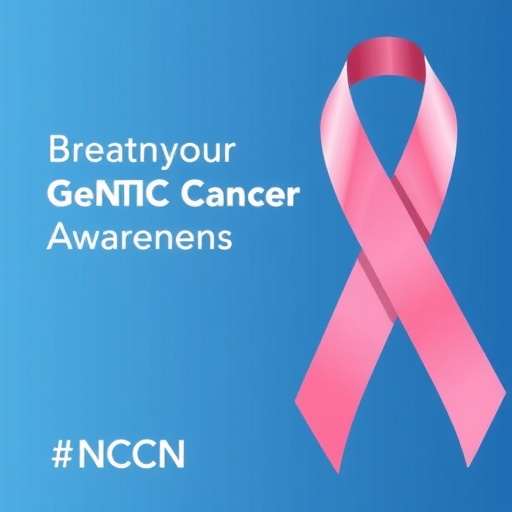In a significant advancement for oncology and personalized cancer treatment, the National Comprehensive Cancer Network® (NCCN®) has unveiled new iterations of its NCCN Guidelines Navigator™, a revolutionary digital platform designed to enhance the accessibility, comprehension, and application of clinical practice guidelines in cancer care. Marking this development during Breast Cancer Awareness Month, NCCN has expanded its digitized guideline offerings to encompass breast cancer therapy and genetic/familial high-risk assessments, reflecting a growing commitment to integrating cutting-edge technology with evidence-based medicine.
The NCCN Guidelines Navigator™ revolutionizes how clinicians and healthcare professionals interact with vital oncological data. Unlike traditional static PDFs, this interactive platform facilitates a dynamic, user-centric experience, allowing seamless navigation through complex clinical pathways. It integrates advanced search algorithms and filtering capabilities that enable users to rapidly locate pertinent treatment protocols, diagnostic criteria, and supportive care recommendations. This evolution caters to the accelerating pace of oncological research, where new insights demand immediate, practical incorporation into clinical decision-making.
At the core of the NCCN Guidelines Navigator™ lies the NCCN Clinical Practice Guidelines in Oncology, acknowledged as the most rigorously updated and comprehensive clinical guidelines across all branches of medicine. These guidelines encompass an extensive spectrum of oncology-related care domains, including cancer prevention strategies, advanced screening methodologies, precise diagnostic workflows, state-of-the-art treatments, survivorship care, and palliative support. The digital navigator enhances this formidable knowledge base with intuitive color-coded navigation, embedded hyperlinks to supplementary NCCN resources, and an integrated feedback mechanism for continuous refinement.
The transition from traditional guideline dissemination to digital formats represents a paradigm shift in oncology education and practice. By leveraging the power of technology, NCCN has not only democratized access to crucial clinical information but has also created a platform that fosters interdisciplinary collaboration and real-time clinical updates. The NCCN Guidelines Navigator™ currently covers over a dozen distinct cancer types and thematic areas, ranging from lymphomas and bladder cancer to complex genetic risk assessments addressing breast, ovarian, pancreatic, and prostate cancers.
Breast cancer guidelines, a focal point of this release, underscore the necessity of personalized treatment frameworks rooted in molecular profiling, patient-specific risk stratification, and emerging therapeutic modalities such as immunotherapy and targeted agents. According to Dr. William J. Gradishar, Chair of the NCCN Breast Cancer Guidelines Panel, this digital tool amalgamates multiple resources into an integrated decision support system, enabling oncologists to align cutting-edge research with individualized patient management, thereby optimizing survival outcomes.
Another hallmark feature of the NCCN Guidelines Navigator™ is its integration with NCCN Chemotherapy Order Templates (NCCN Templates®). These digital templates standardize chemotherapy regimens, ensuring precise dosing, scheduling, and monitoring parameters, substantially mitigating medication errors and enhancing patient safety. This integration facilitates point-of-care prescription accuracy and streamlines the management of adverse events, thus improving overall therapeutic efficacy and tolerability.
Beyond clinical practice, the NCCN Guidelines Navigator™ serves as a conduit for continual profesional development. Clinicians engaging with the platform can accrue Continuing Education (CE) and Maintenance of Certification (MOC) credits through the NCCN Guidelines in Practice™ subscription, affording an innovative, practice-aligned educational model that sustains clinical excellence and regulatory compliance.
Importantly, NCCN also prioritizes patient-centric communication. The Navigator offers direct access to NCCN Guidelines for Patients®, a carefully curated repository translating intricate clinical guidelines into accessible, layperson-friendly language. This resource is enhanced with illustrative content and glossaries, empowering patients and caregivers to participate actively in shared decision-making and navigate their cancer journey with clarity and confidence.
Since its beta launch earlier in the year, the NCCN Guidelines Navigator™ has recorded over 50,000 engagements, accompanied by overwhelmingly positive feedback from users attesting to its robust search functionality, accessibility, and the comprehensive integration of footnotes, references, and regimen details. Such validation highlights the platform’s potential to become an indispensable tool in oncology, bridging the gap between rapidly evolving scientific knowledge and clinical application.
Looking forward, NCCN plans to extend the Navigator’s library, ultimately offering the entire suite of clinical guidelines in dual formats—traditional PDFs and the digitized interactive system. This dual availability ensures continuity while steering the oncology community towards a future where guidelines are not only frequently updated but are also intuitively navigable.
The NCCN Guidelines Navigator™ exemplifies the synthesis of precision medicine with digital innovation, promising to enhance oncological outcomes through better-informed clinical decisions, streamlined workflows, and enriched patient education. As cancer care continues to evolve at an unprecedented pace, tools like the NCCN Navigator will be crucial in ensuring that the latest evidence translates promptly into improved standards of care. Access the burgeoning collection of digitized guidelines and explore these transformative resources at NCCN.org/navigator.
Subject of Research:
Article Title:
News Publication Date: October 6, 2025
Web References: https://www.nccn.org/guidelines/nccn-guidelines-navigator; https://guidelines.nccn.org/guidelines/Breast4_2025; https://guidelines.nccn.org/guidelines/GeneticsBOPP1_2026
Image Credits: NCCN
Keywords: Breast cancer, Cancer, Breast carcinoma, Breast neoplasms, Genetics, Genetic counseling, Cancer risk, Cancer genetics, Oncology




